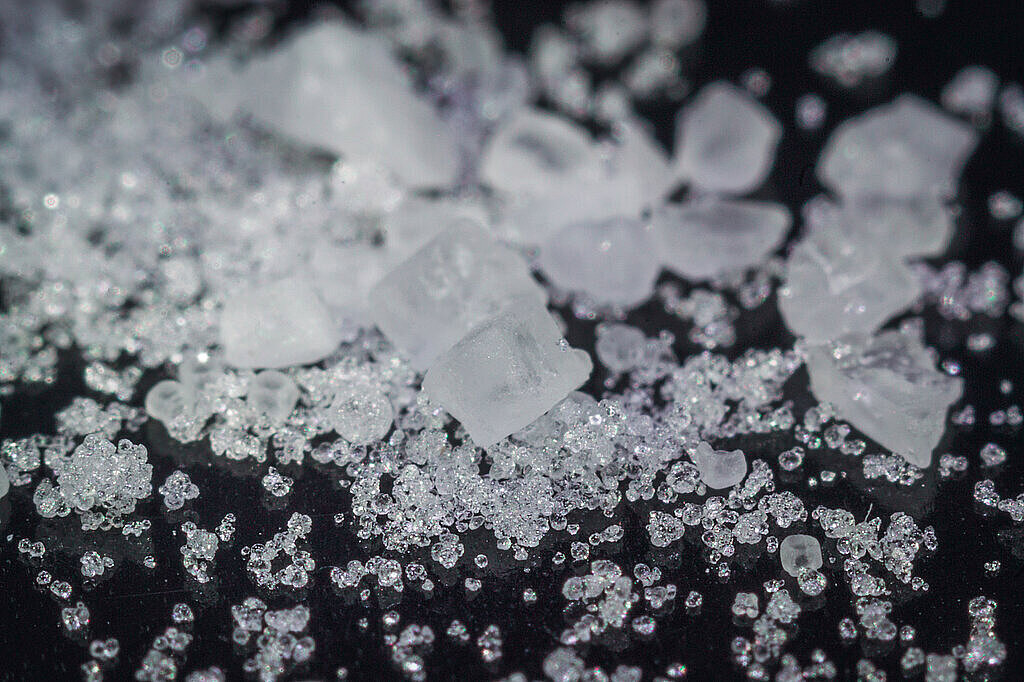Disodium inosinate

Disodium inosinate, a sodium salt of inosinic acid, is an ingredient that is frequently used as a flavor enhancer in the food industry. Its use ranges from ready meals for humans to some pet food products. But while its effectiveness in enhancing flavor is undisputed, questions arise about its safety and suitability for our dogs' diets. In this article, we take a closer look at disodium inosinate and what it is, as well as its benefits and drawbacks for dogs.
What is disodium inosinate?
Disodium inosinate (E631) belongs to the family of flavor enhancers used in the food industry to intensify umami flavor, one of the five basic flavors. It is typically produced synthetically or can be derived from natural sources such as meat, fish and some mushrooms. As a flavor enhancer, it is often used in combination with monosodium glutamate (MSG) and disodium guanylate to create a synergistic effect that significantly improves the flavor of foods.
Advantages of disodium inosinate
Flavor improvement
For dog foods, disodium inosinate can help to enhance the taste and appeal of the food, especially in diet foods or foods for sick animals that would otherwise be less appetizing. This can help to improve feed intake in picky eaters or animals with poor appetite.
Nutrient intake
By helping dogs to accept and consume their food better, disodium inosinate can indirectly contribute to better nutrient absorption. This is particularly important for dogs in recovery periods or with specific nutritional needs.
Disadvantages and risks
Potential health risks
Although disodium inosinate is considered safe for human consumption, the long-term effects of its use in dog food are less well understood. Concerns about potential health risks, such as allergies or intolerances, remain. Especially for dogs with sensitive digestive systems, disodium inosinate could potentially cause gastrointestinal discomfort.
Artificial additives
The use of disodium inosinate and other flavor enhancers in dog food raises questions about the necessity and safety of artificial additives in our pets' diets. There is a growing movement towards natural and unprocessed foods that are free from such additives to promote the health and well-being of animals.
Excessive flavor enhancement
The overuse of flavor enhancers such as disodium inosinate can make dogs less inclined to accept natural or unflavored foods, which could make their diet unbalanced and interfere with the absorption of important nutrients.
Disodium inosinate is an effective flavor enhancer that can potentially improve the acceptability and nutritional intake of dog food. However, there are also potential risks and disadvantages associated with its use. The decision to feed products containing disodium inosinate should be carefully considered, especially with regard to the individual health and needs of the dog. A natural, balanced diet remains the gold standard for feeding our four-legged friends.
If you notice any signs of hypersensitivity or poisoning in your dog, you should see your vet immediately. We are not a substitute for a vet, but we try to be as accurate as possible. Every dog reacts differently and we recommend you get a second opinion or consult your vet if in doubt.
Stay healthy and take good care of your four-legged friend!😊
Similar to Disodium inosinate
Monosodium glutamate (MSG) is the sodium salt of the amino acid glutamic acid. Glutamic acid is a natural substance that is found in many proteins and plays an important role in metabolism. MSG is...
Yeast extract is a product obtained from yeast. Yeast is a microorganism that converts sugar into alcohol and carbon dioxide. This process is also called fermentation and is used, for example, in...
Inosine monophosphate, also known as IMP, is a nucleotide that occurs naturally in various foods and is often used as a flavor enhancer in the food and feed industry. IMP is known for its ability to...
Disodium guanylate, also known as E627, is a food additive that serves as a flavor enhancer. Chemically speaking, it is the sodium salt of guanylic acid, a substance that occurs naturally in meat...



